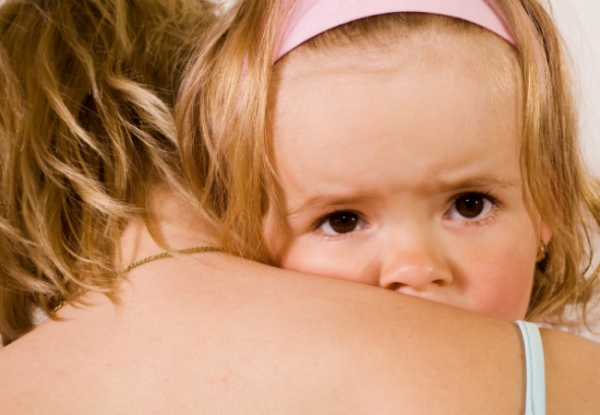A Safe Place to Feel Bad
by Rebecca EanesI don’t think I’m alone in this – I hate when my children feel bad. I don’t want them to have to feel sadness or loneliness, grief or pain. I wish they were in a permanent bubble of joy, and no bad feelings could touch them. When they come home from school feeling sad because they were rejected or when they feel angry because something didn’t go as they’d hoped or planned, my initial reaction is to make it better. Then come the questions I desperately want to ask. “Why did he not let you play?” “What did you do?” “Why did the teacher say that?” “What did your brother do to you?” I’ve learned to breathe through those initial reactions (most of the time) because in my 11 years of parenting, I’ve learned that they don’t need 20 questions nor do they necessarily need me to fix it. What my kids really need is a safe place to feel bad.
##adbig##
That’s hard, isn’t it? Frankly, it makes me uncomfortable when they feel bad. Their sadness becomes my sadness; their pain is my pain. That’s par for the course in parenting, but allowing them space to feel all their feelings, even the rough, prickly ones, is a tremendous gift. Let’s look at parents’ typical responses to negative feelings:
1. The Dismiss – “Oh, cheer up. It can’t be that bad.” “You’re making a mountain out of a molehill.” “If that’s your biggest problem, you’re pretty lucky.” We just want them to learn some perspective, right? A broken toy isn’t the end of the world. Kid problems seem really small in comparison to our adult problems, but to our kids, kid problems are the only problems they know, and they feel just as big to them as our adult problems feel to us. In fact, how they learn to handle the kid problems now will have a big impact on their overall happiness and success in life. When we dismiss their feelings, they either learn not to trust their own emotions (Why does this bother me so much if it’s not a big deal? What’s wrong with me?) or they may feel like we just don’t truly care about their emotional world or that don’t “get them,” and that harms our relationships.
Try this: Instead of “it can’t be that bad,” try telling your child about a time you experienced something similar and how you felt at the time. Feeling like their parents understand and empathize with them helps them feel closer to us, and connection is important in guarding against depression and addiction.
Continued on the next page...












